Zimbabwe. “Christians Must Enter Politics”.
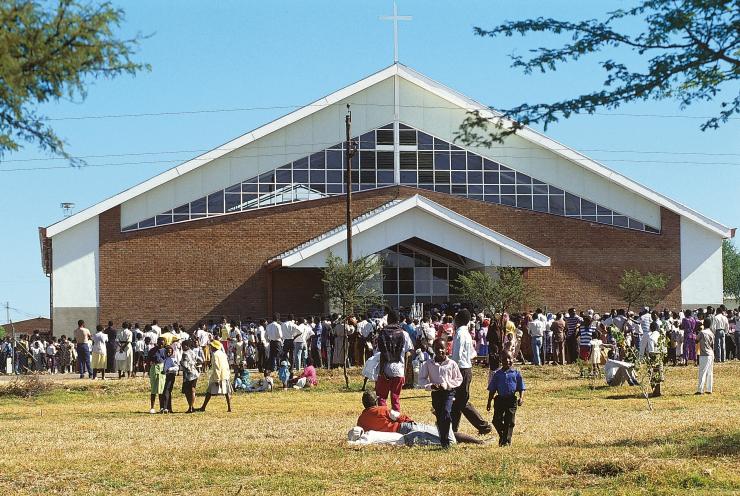
What the Catholic Church is doing and what role it is playing in this electoral process. But above all the Church must motivate Catholics and all people of good will to run as candidates and enter politics.
The question that many are asking is whether the political and administrative elections of 23 August will be peaceful, free, and fair. But this is not the most crucial question. The main one is whether these elections will make a difference in the lives of Zimbabweans.
President Emmerson Mnangagwa has already declared that the elections will be free and fair. Meanwhile, Zanu-PF, the ruling party, continues to repeat the usual propaganda slogans: claiming to have freed the country from colonialism and to be committed to dealing with the ‘illegally imposed economic sanctions’.
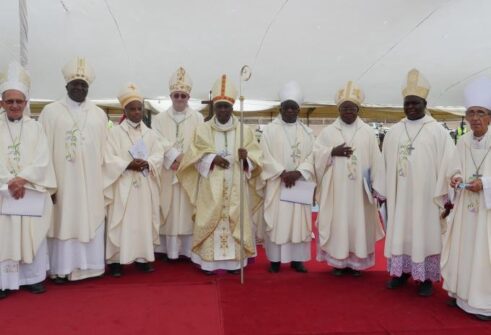
The Catholic Bishops in Zimbabwe. Photo: JesCom
The main opposition parties offer nothing new as an alternative and simply accuse the party in power for 43 years of having led the country into bankruptcy. Some Churches and the Vapostori (indigenous African religious movements) do everything to present themselves as supporters of the president and the leaders of his party, indicated as people chosen by God. Politicians seize the opportunity of the elections to solicit the consent of Christians who feel inwardly torn between following their own conscience or the directives of their religious leaders.
Open Questions
One wonders what the Catholic Church is doing and what role it is playing in this electoral process. Perhaps the right question is: what should the Church do to ensure that elections produce good leaders who are committed to bringing about change in the lives of the poor, creating new jobs, fixing roads, providing clean water and renovating public hospitals. So far, the Catholic bishops have expressed hope in several pastoral letters that the elections take place regularly.
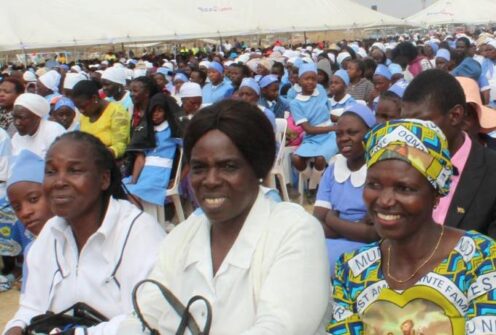
“One wonders what the Catholic Church is doing and what role it is playing in this electoral process”. Photo: JesCom
In their latest letter for Lent 2023 (Breaking unjust chains), the Bishops’ Conference states: “We are heading towards these important general elections to elect a leader who has a clear plan to put the family first, who creates new dignified jobs of work in such a way as to reduce the number of poor people who have been increasing and live in desperate situations of total deprivation. These voters must be able to elect to the highest office of the state a leader who cares about the health of the poor (…) who is able to start inclusive economies (…) avoiding that one group progresses at the expense of another”.
The bishops not only describe the qualities of the desired president but also outline the type of politicians that are needed. And they wonder: “Can’t we perhaps choose from among the candidates, people who know how to guide our country on the path of economic progress, justice and freedom (…), leaders with the duty to account for their work to the citizens?”. However, with the disappearance of the moral conscience in most of our political leaders (it would suffice just to look at the level of corruption), the pastoral letters of the bishops no longer have the same impact as they once did. Politicians and the government no longer listen to the voice of conscience. I do not believe that the pastoral letters of the bishops influenced the choice of candidates for the primaries of both the government and the opposition party. I also doubt people will heed their pastors’ recommendations when voting.
A change of approach
Instead, I would like to propose a slightly different approach for the voice of the Church to have a greater impact. First, I propose that the Church use its decentralized structures such as parishes, schools, hospitals, etc., to gather information from the concrete life experiences of citizens and then write a pastoral letter addressed to the government and politicians based on the evidence of the facts, asking them to carry out specific interventions to produce a change in the life situations highlighted by the people.
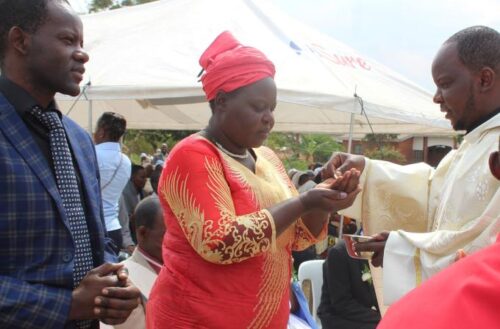
“The Church should encourage the faithful to participate in the electoral process”. Photo: JesCom
Government officials and politicians will be frightened if they see problematic situations made public in their constituencies. In this way, the Church will be able to speak as the voice of the poor with prophetic and moral authority, avoiding the mere rhetorical repetition of generic statements on the situation of the country. Furthermore, the Church should encourage the faithful to participate in the electoral process first of all by registering to qualify to vote and then to choose those politicians who know how to stimulate economic growth, reduce poverty, and start the reconstruction of the country.
Finally, I propose that the Church motivate Catholics and all people of goodwill to run as candidates and enter politics. Many Christians are still grappling with the question of whether or not it is good to engage in politics while others live in a state of apathy and resignation.
In addition to encouraging participation in elections, the bishops should address a pastoral letter directly to those Christians who aspire to become politicians.
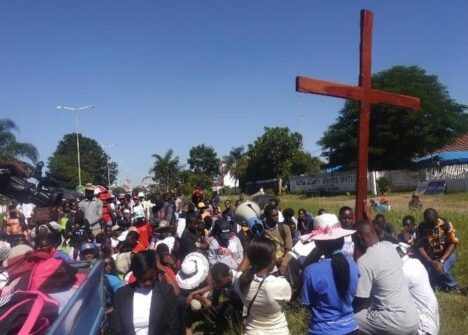
“The Church must motivate Catholics and all people of goodwill to run as candidates and enter politics”. Photo: JesCom
All this will favour the formation of candidates so that they know how to respond to the political vocation guided by the principles of the social doctrine of the Church, by the values of the Gospel, and by the life experience of citizens. Consequently, the intervention of the Catholic Church on the eve of the elections will no longer be considered a mere routine exercise by religious leaders, but an action that affects the entire electoral process. In this way, the bishops will make their influence felt on voters and politicians, contributing to economic growth and the reduction of poverty.
Gibson Munyoro,
Director of the Jesuit Refugee Service for Southern Africa



